About the Series
Earlier this month, Altus Partners hosted the first in its Curious about corporate development series where Philip Hodson, Director of Portfolio Finance at Altus, was joined by Alex Perry to answer some of the burning questions of new entrants to the world of Corporate Development.
Altus aims to create an informative and succinct primer for corporate development professionals to help enrich the talent pool for future business and empower organisations to facilitate effective and prosperous deal-making.
Alex Perry is the Director of Corporate Development at Aspen Pumps Group and has been in the role since 2017, with a prior two year appointment as Senior Manager of M&A and Investment at Atento.
Q&A
Q. In terms of due diligence, what advice would you give someone looking to move into corporate development to ensure that the mandates are right for them?
Alex: You’ve got to think of yourself as an investor who is primarily investing their time -which no amount of diversification can offset. These are dynamic, exciting roles, you’re entering a business to help it move forward and you’ll be creating real value within these roles. At a time when asset value is rising so quickly, being in a position to influence a business’ equity directly makes a lot of personal and financial sense.
There are three questions to ask yourself:
Can this business achieve the business plan in terms of its growth?
Have they got a realistic exit at the end of that growth, a means to unlock the investment through sale or M&A?
Will you – as an individual – still be around to benefit from the payoff of your investment?
This last question is perhaps the most important, typically in the case of corporate development, the remuneration tends to come at the end of the process, and timeframes for this are subject to change. So be certain that, as a long-term engagement, this is a position that interests you on its own merits, beyond mere financial compensation.
Q. What do you say to people who view corporate development as a route to investment mandates?
Alex: I’d advise them to look again at that sort of thinking since corp dev isn’t considered a route to investment classically speaking. My advice would be that if investment is what you’re interested in then you should seek a direct route in that field, even if it means starting in a junior role.
Once you’re part of a management team it can be difficult to branch out into investing, this is not to say that it can’t be done, however I don’t think corp dev is the best route; rather than something that should be pursued on its own merits.
Q. In your experience, what are the nuances of working within Large & Mid-Cap Organisations?
Alex: I think the first thing anyone will tell you about working within the wider PE environment is that every fund is different, with its own idiosyncrasies and approaches. Generally speaking, there are distinct patterns within the two different market scales i.e. Mid-Cap vs Large-Cap.
In mid-markets, by and large, value creation is primarily focused on growth strategy, however, the fundamentals of investment management differ slightly. Each investment partner can be expected to be managing a multitude of different deals simultaneously, in addition to their new deal workload. Typically there is a very minor portfolio resource supporting them, if there is one at all.
By contrast, larger cap environments typically tell a more balanced story when it comes to value creation, some growth but also more on costs and reorganisation of the business, more of a structured approach M&A, and quick entry and exit of other businesses. Usually, there’s a dedicated internal portfolio resource, which creates a merged relationship and sense of responsibility between the management team and the fund.
While you might expect more autonomy as part of a management team in the Mid-Cap space, with investors following a classical model and conducting periodic check-ins, Large-Caps tend to have the immediate resources to start making and actioning decisions instead of a slow and steady model, that is subject to investor influence over time.
Q. What about the stakes involved, a lot of people I’ve spoken to about the differences between Mid-Cap and Large-Cap with regards to autonomy, is that it really comes down to the scale of the challenge. By all accounts it should be easier to scale from £5m to £10m than from £50m to £150m, how do you rationalize that challenge as well?
Alex: I think that underlines this idea of Mid-Cap being really about growth, at that scale you have a real opportunity to grow your business but the larger a company gets, the more you get into conversations about strategy and market size.
For example, cyber market share gain is notoriously difficult to achieve and maintain, so with larger cap markets, growth through merely outperforming the competition can be very challenging. The gains are much more modest and the value creation are increasingly balanced and diverse. Compared with Mid-Cap – where you’re aiming toward doubling the size of your business.
Q. Having worked in both those areas, consulting and corporate finance, what skill set do you find yourself utilizing most in these roles and what experience do you value highly?
Alex: Based on my experience at BDO accounting and then later at Boston Consulting Group, I think that both skill sets are of high value. For candidates entering into anything but the very largest of buyouts, you’re going to be a fairly unique resource to the company that you’re joining and will be perfectly well positioned to receive interesting work and develop a career within that business.
On the finance side, there are obviously certain skills that are absolutely essential, you must understand the fundamentals of the deal process - though it is a relatively straightforward process to learn.
I think that the real differentiators are soft skills like interpersonal relationships, emotional intelligence, negotiation skills, and the ability to self-motivate and execute independent tasks. These, more than having the best model or slideshow, are what will dictate your effectiveness in consistently obtaining satisfying and prosperous deals.
Q: In your experience, are there many mid-market players that might be open to candidates with a less comprehensive experience of Mergers and Acquisitions, on the basis that their investment managers can assist?
Alex: The fundamental thing is that you’re not on your own and on a typical buy-out management team, most of the individual members will likely have 10+ years’ experience in that industry. The idea isn’t to be some kind of superman knocking down doors and delivering deals on your own. Instead, leverage the skills and experience that these lifelong veterans already have, to help open those doors together.
It’s very common, for example, at the lower end to see the CEO being very heavily involved in the origination effort, with the CFO being highly involved on the execution side too.
You see different models in terms of how the fund supports the bolt-on M&A process and it’s good to set those expectations early on. Some funds will see bolt-on as fodder for their junior investment managers and associates on the deal team to earn their stripes, while others will not want to be involved at all. On the larger side, however, they might be willing to throw quite significant deal resources in, so clearly, it’s not a ‘one size fits all’ model.
Q: Since it’s not only about the fund, what advice would you give to someone going into a Private Equity-backed asset in terms of both the fund and your internal C-Suite?
Alex: That’s a really important point, and once you’ve made the decision to enter corp dev, your first priority should be in establishing and maintaining your management team relationships. Whether that is primarily your CEO or CFO will depend on where you sit within the organization but those relationships, between the C-Suite, the Chairman, and the fund, are what drives the business as a whole.
However, it is your direct relationship with either the CEO/CFO that will prove most important for you at the beginning.
Q: There seems to be a growing fixation for those getting into PE and M&A with who the fund is that will be behind them. What are your thoughts on this?
Alex: You’ve got to understand that you’re in an environment where your position in the business is most heavily influenced by the CEO/CFO’s confidence in you and that is far more important than what the fund thinks purely because they’ll be much closer to you on a day to day basis.
Q: A lot of people stress that when it comes to working in PE or with C-Suite management teams that the importance of first impressions, the first 100 days within asset [is crucial], what advice would you give to people during that period?
Alex: The importance of the first impression is a truism in general, you have absolutely got to hit the ground running. PE-backed businesses pride themselves on being action-oriented and you’ve got to come in with that energy, with enthusiasm, and deliver tangible output from day one.
Closing Thoughts
Q: To conclude, what would your three key takeaways be for those looking to get into Corporate Development?
Alex: Firstly, make sure the opportunity is the right fit for you, as an individual and aligns with what you are interested in because this is a really long-term investment of your time and you’ve got to make sure it’s right going in. That goes for the opportunity, as well as what your remuneration might be, don’t be afraid to negotiate, you’re an M&A professional and that’s to be expected.
Secondly, make sure when you arrive that you are bringing energy, positivity and remember that you’re joining a private equity-backed business that prides itself on being action oriented. You need to it the bill and deliver on those expectations from the word go.
Finally, PE is a relationship-driven world, so make sure you’re building good relationships in your immediate management team but also, extend to the fund and internally within your business because you’re going to be there for the long run.
To watch a recording of this event, please click here.


.png)
.png)
.png)
.png)

.png)
.png)




Connect with us